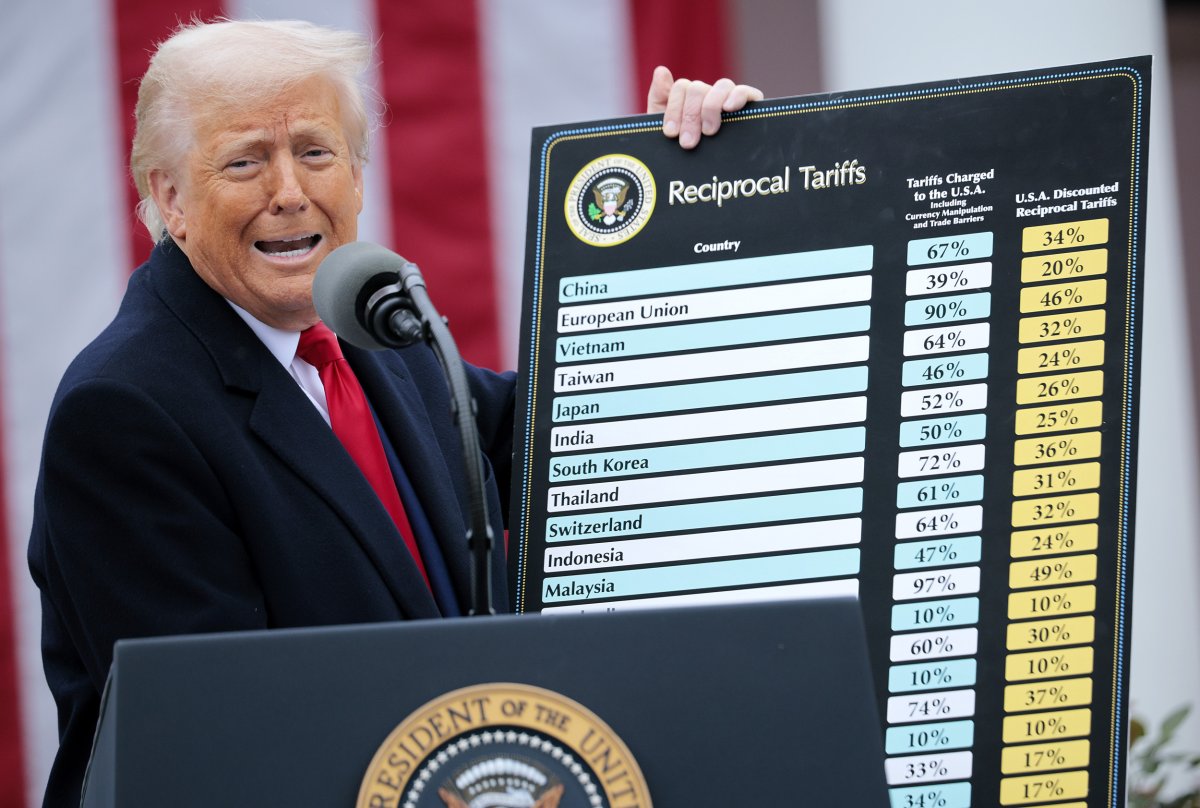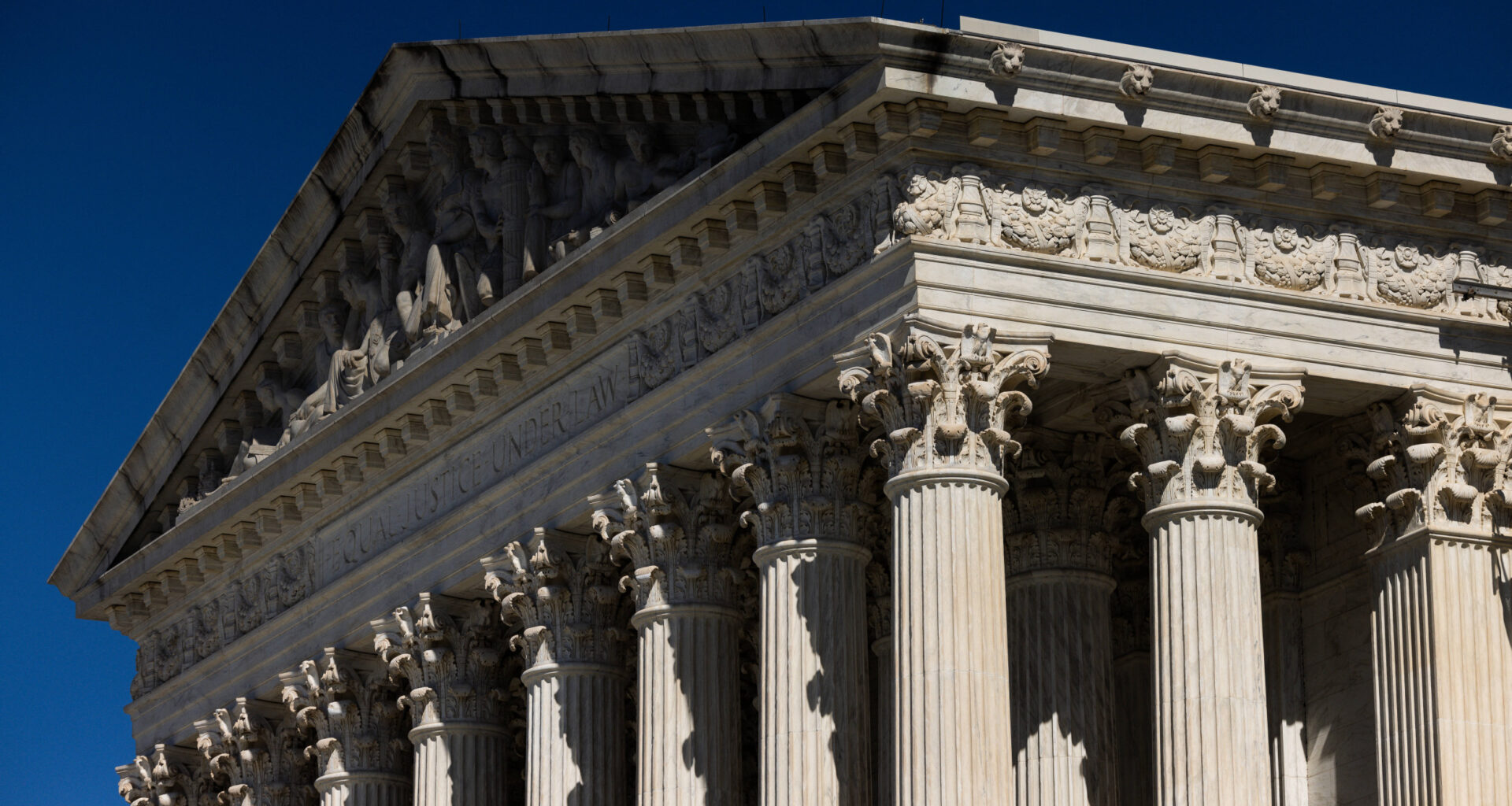In acting alone to impose his sweeping trade agenda, President Donald Trump bet that he could expand executive power without facing pushback from Congress or the courts.
Trump was right about Congress — Republicans in charge of the House and Senate backed his decision to rewrite U.S. tariff policy without seeking legislative approval — and now his gamble may pay off as well at the Supreme Court, where the administration is seeking final say on the president’s signature economic issue.
The court on Thursday set a Nov. 5 date to hear oral arguments challenging the legality of Trump’s tariffs. Earlier this month the court agreed to fast-track two tariff-related cases in a sign that it could issue a decision by the end of the year.
Lower courts have repeatedly ruled against the administration’s authority in imposing broad and sweeping tariffs on an emergency basis. But the Supreme Court has given Trump a wide degree of latitude in his second term to exert executive authority and could wind up ruling in his favor on the tariff issue, legal and trade experts told Newsweek.
“This Supreme Court has been very deferential to President Trump in many respects,” said Alan Wm. Wolff, a former deputy director-general of the World Trade Organization. When it comes to tariffs, “I think the administration will ultimately get a victory.”

The US Supreme Court is seen in Washington, DC, March 2, 2025.
The US Supreme Court is seen in Washington, DC, March 2, 2025.
Tierney L Cross/Getty Images
A landmark victory for Trump on trade is not a foregone conclusion. The court, which has a majority of six conservative justices, has ruled against the president in some cases related to executive power.
And Wolff and others said it’s unclear how the justices would justify Trump’s unilateral decision to impose tariffs. Constitution law does not give the president authority to impose tariffs. Courts in the past have reigned in presidents seeking to levy tariffs on their own by invoking national security concerns.
“The concern is that if we allow it here that could creep into other laws that give the executive branch” greater power, Jeffrey Schwab, an attorney representing the plaintiffs in one of the cases that is now before the Supreme Court, told Newsweek.
The Constitution grants Congress the power to “collect Taxes, Duties, Imposts and Excises,” and “regulate Commerce with foreign Nations,” according to Article 1, Section 8. There is no mention of presidential authority to unilaterally set tariff policy.
The Trump administration invoked the International Emergency Economic Powers Act, a 1977 law known as IEEPA, to place global tariffs of 10 percent on all imports, as well as higher tariffs on specific countries and goods. The tariffs have raised billions in new revenue. They’ve also sparked a trade war as China and other countries have retaliated with new tariffs against American goods while seeking better trading terms with the U.S.
Several small businesses and states challenged the tariffs in court. A federal appeals court in Washington, D.C. and the Court of International Trade ruled that Trump’s tariffs amounted to executive overreach. The federal appeals court left the tariffs in place while the administration appealed the decision to the Supreme Court.
Opponents have argued the tariffs should be struck down because the emergency powers act doesn’t explicitly give the president power to raise tariffs.
Trump has said the United States would face an “economic disaster” if the tariffs are removed. The president and senior administration officials continue to frame the issue as a matter of national security, arguing that tariffs are needed to stop the flow of fentanyl into the country and secure stronger trade deals with China and other rivals.
“The fact of the matter is that President Trump has acted lawfully by using the tariff powers granted to him by Congress in IEEPA to deal with national emergencies and to safeguard our national security and economy. We look forward to ultimate victory on this matter with the Supreme Court,” White House spokesman Kush Desai said in a statement to Newsweek.

President Donald Trump holds his tariff chart in the Rose Garden at the White House on April 2, 2025 in Washington, DC.
President Donald Trump holds his tariff chart in the Rose Garden at the White House on April 2, 2025 in Washington, DC.
Chip Somodevilla/Getty Images
Congress has at times given a president leeway to impose certain tariffs, and Trump isn’t the first president to use his executive authority to act on the issue.
In 2003, President George W. Bush imposed tariffs on imported steel that lasted for roughly nine months. In 1971, President Richard Nixon created a 10 percent charge on all imports to combat a currency crisis. Nixon lifted the surcharge after four months.
Critics of Trump’s tariffs argue that, in both those cases, the tariffs were temporary and targeted, unlike the current duties on a wide range of goods from dozens of countries.
“There are examples of Congress delegating tariff authority to the executive branch, but it’s not a carte blanche,” said Clark Packard, a trade expert at the Cato Institute who opposes Trump’s tariffs.
Opponents also cite the landmark 1952 Supreme Court ruling Youngstown Sheet & Tube Co. v. Sawyer, in which the court ruled that President Harry Truman lacked the authority to nationalize the country’s steel mills in response to a potential union strike during the Korean War. The case set the precedent that presidents can’t overstep their executive authority in moments of national emergency.
“Even when it comes to foreign policy, the president’s authority may still only come from the constitution or federal statute. He has no inherent power in a national emergency,” said Michael Gerhardt, a constitutional law expert at the University of North Carolina at Chapel Hill.
Still, courts have long deferred to presidents on issues of national security and foreign affairs. Court watchers and trade experts said it’s possible the Supreme Court will defer to Trump on his tariff agenda, either by allowing all of the tariffs to remain in place or by striking some of them down but leaving enough in place for the president to claim victory.
A win at the Supreme Court “would be an enormous validation of his approach” to the use of executive power on tariffs and other issues, Packard said. But “if the court greenlights these tariffs, that really truly opens up a Pandora’s box.”
